No products in the cart.

The superfoods craze has exploded in recent years, promising miraculous health benefits. But in 2025, a UN report revealed that many of these star products are causing deforestation, water scarcity, and labor exploitation. We tell you which are the worst offenders and how to replace them without harming the planet.
The 5 Most Problematic Superfoods
1. Avocado: “Green Gold” Drying Up Chile and Mexico
Impact:
- 2,000 liters of water to produce 1 kg (equivalent to 12 showers).
- Illegal logging in Michoacán (Mexico) to plant orchards.
- Drug cartels control 40% of production.
Ethical alternative:
- Pea guacamole: Similar protein, 90% less water.
- Local olives: Healthy fats without an excessive water footprint.
2. Quinoa: The Andean Grain That Ruined Soils
Impact:
- Monoculture crops in Bolivia reduced soil fertility by 60%.
- Soaring prices left farmers unable to buy their own staple food.
Ethical Alternative:
- Mexican Amaranth: Same nutritional profile, regenerative farming.
- Buckwheat: Grown on marginal lands without pesticides.
3. Goji Berries: The Tibetan Trap
Impact:
- Diversion of rivers in Ningxia, China, to irrigate plantations.
- Uyghur workers in conditions close to slavery.
Ethical Alternative:
- Local Gooseberries: Same antioxidants, harvested in Europe/America.
- Cranberries: Grown on sustainable peatlands (e.g., Patagonia).
4. Almond Butter: The California Disaster
Impact:
- 6,000 liters of water per liter of butter.
- Beehive collapse due to monocultures requiring mass pollination.
Ethical Alternative:
- Sunflower Butter: 1/10 the water, same texture.
- European Hazelnut Butter: Forests in Turkey and Italy benefit.
5. Coconut Oil: The Deforestation of Southeast Asia
Impact:
- 25 million coconut palms planted in cleared forests.
- Macaques enslaved for harvesting in Thailand (documented by PETA).
Ethical Alternative:
- Organic Rapeseed Oil: High in omega-3s, European cultivation.
- Shea Butter: Harvested by women’s cooperatives in Africa.

The “Exotic Superfood” Deception
Science shows that:
- There are no magic foods: A varied diet with local products provides the same nutrients.
- Transportation matters more than food: 1kg of goji berries from China emits 5kg of CO₂ vs. 0.02kg of local blackberries.
3 Rules for Guilt-Free Consumption
- Prioritize the “ugly”: Imperfect fruits/vegetables in season.
- Look for certifications: Fairtrade, Rainforest Alliance, Organic.
- Discover local superfoods:
- Spain: Spirulina from Almería (sun-grown).
- Mexico: Chapulines (70% more sustained protein than meat).
- USA: Aronia berry (antioxidants without deforestation).
The Movement That’s Changing the Rules
- “Regenerative Superfoods”: Brands like Patagonia Provisions reverse soil degradation.
- Water footprint taxes: Israel and Catalonia already apply them to avocados.
- Blockchain for transparency: Scan your quinoa’s QR code to see its journey from the field.
“Eating well shouldn’t cost any ecosystem its life” — Vandana Shiva, food activist.



